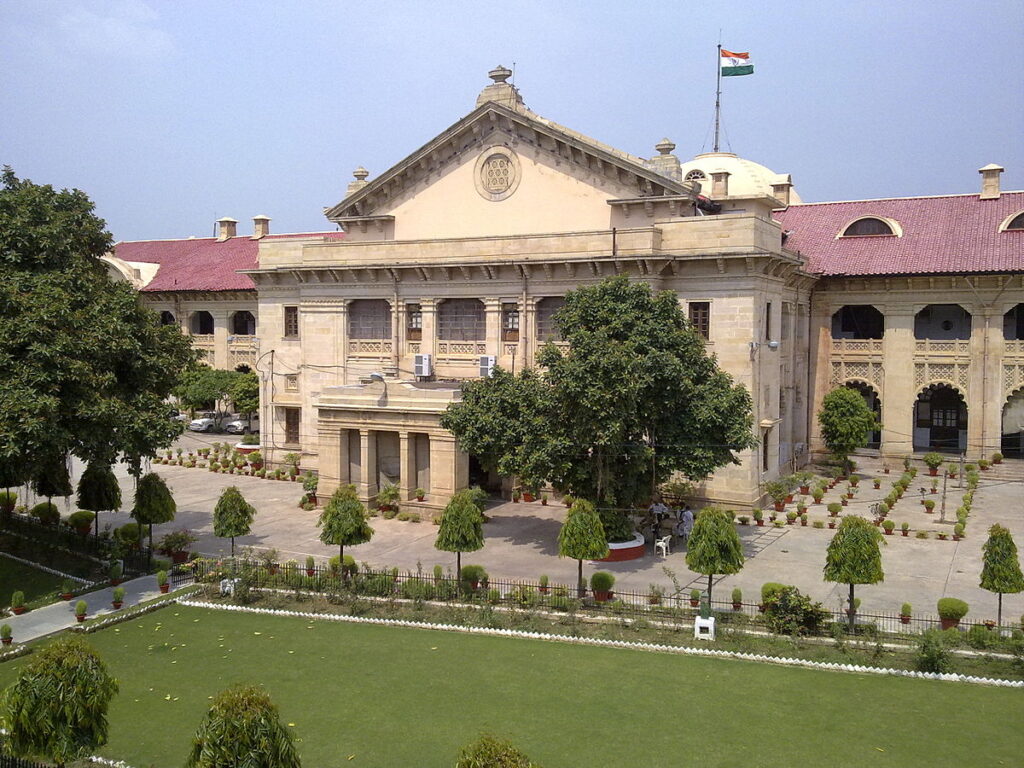A nominee can access the funds in a deceased depositor’s bank account, but the money received will be governed by succession laws, according to the Allahabad High Court.

The Allahabad High Court stated that a nominee can access funds from a depositor’s bank account after the depositor passes away. However, this money is still subject to succession laws, meaning the deceased’s heirs also have a claim to it. The court was reviewing a Writ Petition asking for a direction to allow the petitioner-son, as a nominee and legal heir, to receive the FDR Accounts. The Division Bench, including Justice Shekhar B. Saraf and Justice Vipin Chandra Dixit, affirmed that the petitioner has the right to withdraw the money from the bank as a nominee. The petitioner’s mother passed away in 2020 and owned multiple properties and FDRs at the Bank of Baroda, with the petitioner named as the nominee on all of them. Although the petitioner filed a succession suit, it was dismissed because another suit was ongoing regarding the cancellation of the mother’s will. The petitioner argued that, as the nominee, he is entitled to the FDR funds under Section 45ZA of the Banking Regulation Act, 1949.
Additionally, reference was made to Paragraph 2 of Circular letter No.RB12004-05/490 from 2005, which states that if a depositor has a valid nomination or a survivorship clause, the bank’s payment to the nominee or survivor is a valid discharge of its liability. However, the respondents contended that Section 45ZA cannot override succession laws, meaning that even if the petitioner receives the funds, he must hold them in trust for the deceased’s legal heirs.
Reliance was placed on the decision of the co-ordinate Bench in the case of Cdr. Vineet Kumar Sharma Vs. Union of India and others (2024: AHC: 12018-DB). It confirmed that under Section 45-ZA (2) of the Act, only the nominee is entitled to receive funds from the bank, regardless of any will or other arrangements. The right to receive money from the bank is separate from the right to inherit that money. In the Cdr. Vineet Kumar Sharma case, the court also referenced the Supreme Court ruling in Chander Talwar and another Vs. Devender Kumar Talwar and others, (2010) 10 SCC 671, which stated that the money received by the nominee under Section 45-ZA(2) is part of the deceased depositor’s estate and will be distributed according to the applicable succession laws.
After reviewing various Supreme Court rulings and the co-ordinate Bench’s decision, the Bench concluded that the petitioner, as the nominee, has the right to claim the funds from the bank. However, it noted that this money would be subject to succession laws, meaning the deceased’s heirs have a claim to it according to the law. The petitioner’s lawyer agreed to hold the money in trust and to pay the legal heirs as determined by the courts. Consequently, the Bank of Baroda was instructed to release the funds in fixed deposits to the petitioner within three weeks. The petitioner must also submit an affidavit to the bank confirming that the money is held in trust and that he will pay the legal heirs as required by law.
Cause Title: Manoj Kumar Sharma v. Union Of India And Another [Neutral Citation- 2024:AHC:177835-DB]
Appearance:
Petitioner: Advocate Ram Lal Mishra
Respondent: A.S.G.I. Anadi Krishna Narayana, Advocates Harish Kumar Yadav,Ishan Shishu & Sandeep Kumar Singh









